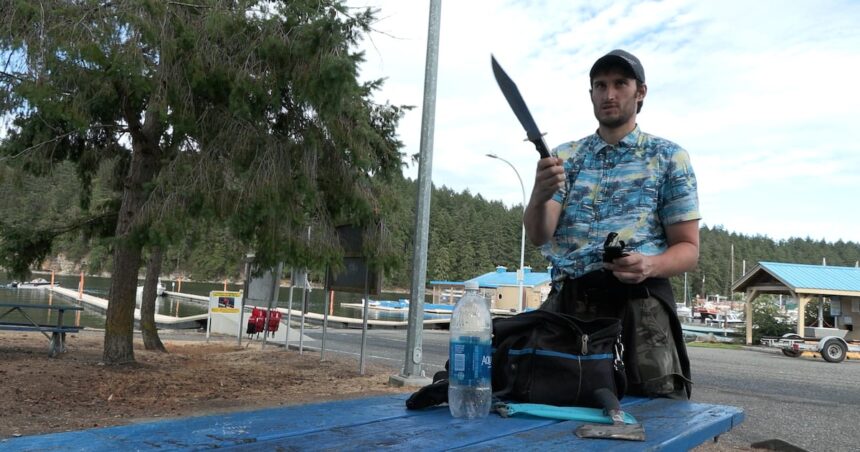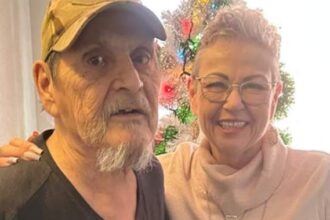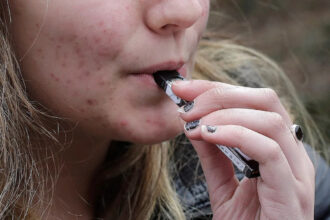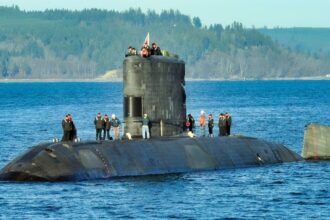The dense wilderness of Vancouver Island nearly claimed another victim last week, but through remarkable resilience and survival instinct, 34-year-old Michael Brennan managed to rescue himself after three harrowing days lost in the backcountry.
“I started yelling when I heard voices in the distance,” Brennan told CO24 in an exclusive interview from his hospital bed in Victoria. “At that point, I hadn’t seen another human being for 72 hours and was starting to believe I might not make it out alive.”
Brennan, an experienced hiker from Calgary, had set out on what was intended to be a day hike along the Juan de Fuca Marine Trail when unexpected fog rolled in, obscuring trail markers and disorienting him. What followed was a grueling test of both physical endurance and mental fortitude as temperatures dipped to near-freezing during the nights.
“The first night was the hardest psychologically,” Brennan explained. “I realized I had made a critical error by not packing emergency supplies for a day hike, something I’ve always advised others to do.”
According to search and rescue statistics obtained from Parks Canada, Vancouver Island sees approximately 25 serious search operations annually, with an average of three fatalities. The rugged terrain, rapidly changing weather patterns, and dense forest create particularly challenging conditions for even experienced outdoor enthusiasts.
Sergeant Melissa Chen of the Vancouver Island Search and Rescue Coordination Center emphasized the significance of Brennan’s self-rescue. “What Mr. Brennan accomplished is remarkable. He followed several key survival principles that ultimately saved his life—staying in one general area once he realized he was lost, rationing his limited water, and creating visible markers that could be spotted from the air.”
Brennan’s ordeal highlights the critical importance of proper preparation for wilderness excursions. “I survived on a single granola bar for three days,” Brennan said, his voice still hoarse from dehydration. “I collected rainwater using leaves and my baseball cap. It wasn’t enough, but it kept me going.”
The breakthrough came on the third day when Brennan heard the faint sound of voices from a recreational hiking group about half a kilometer away. Despite his weakened state, he managed to climb to higher ground and signal with his emergency whistle—the one piece of safety equipment he had brought.
Dr. Elaine Sharma, wilderness medicine specialist at Victoria General Hospital, noted that Brennan’s case demonstrates how quickly situations can deteriorate in the backcountry. “He came to us with moderate dehydration, early hypothermia, and several infected cuts from bushwhacking. Another night in those conditions could have resulted in a very different outcome.”
The incident has prompted regional park authorities to review signage and emergency protocols along several popular trails. Park Superintendent Robert Michaels confirmed that additional emergency caches will be installed at strategic points along the Juan de Fuca trail by next month.
“I made mistakes that nearly cost me my life,” Brennan reflected as he prepared for discharge from the hospital. “But I also made some correct decisions in the crisis that saved me. I hope others can learn from both.”
As outdoor recreation continues to surge in popularity across Canada’s wilderness areas, with Tourism British Columbia reporting a 32% increase in backcountry permits over the past three years, Brennan’s experience serves as a powerful reminder of nature’s unforgiving character.
The question now facing both experienced hikers and casual outdoor enthusiasts: In an age of GPS technology and cell phones, have we become too complacent about the very real dangers that await in Canada’s beautiful but potentially deadly wilderness areas?










